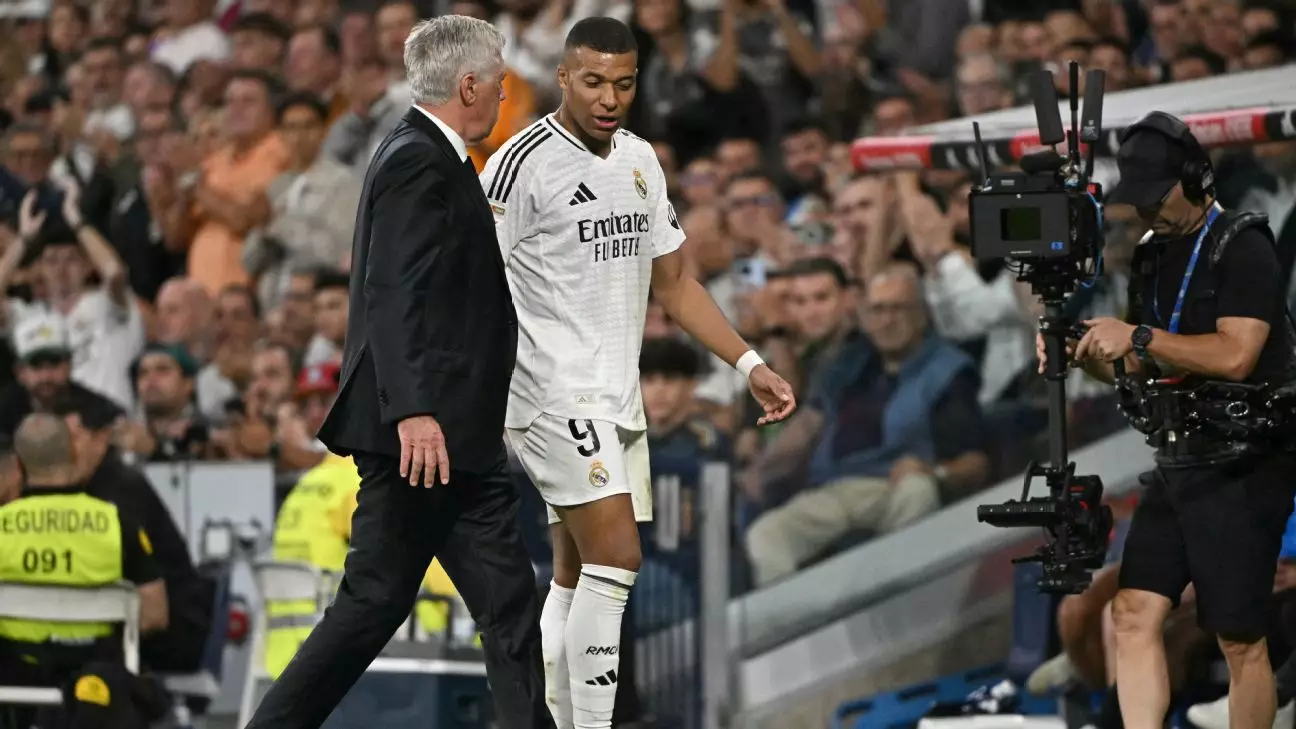The ongoing feud between Real Madrid and LaLiga president Javier Tebas illustrates the complexities surrounding football governance and officiating standards. Recently, Tebas insultingly remarked that Real Madrid has “lost their minds” regarding their complaints about referee decisions—an accusation Carlo Ancelotti has vigorously countered. Ancelotti emphasized that the club’s motives are grounded in a desire for improvement and reform rather than baseless grievances, insisting that they are simply seeking clarity on a perplexing officiating landscape.
The latest controversy stems from a match against Espanyol where Madrid felt wronged after defender Carlos Romero escaped a red card for an aggressive challenge on Kylian Mbappé, a play that eventually led to Espanyol’s goal that sealed Madrid’s defeat. Such instances are vital in understanding the stakes at play, as Madrid is not just fighting for points but also for a level playing field.
In their quest for justice, Real Madrid formally approached the Spanish Football Federation (RFEF) to release crucial audio recordings regarding the foul on Mbappé. This step reflects Madrid’s commitment to transparency and an insistence on accountability within officiating. Ancelotti criticized the lack of response from the RFEF, despite assurances of openness, indicating a gap between rhetoric and reality that may undermine the governing body’s credibility.
The coach’s comments also shed light on a broader sentiment within the football community: dissatisfaction with officiating standards. Ancelotti pointed out an apparent contradiction in perceptions; while some observers suggest that the system favors Real Madrid, the moment the club voices its concerns about unfair treatment, it is met with skepticism and hostility. This phenomenon raises questions about the fairness of discussions surrounding referee performance and the need for an equitable dialogue.
As if to add fuel to the fire, rivals Atlético Madrid have taken to social media to chastise Real Madrid for allegedly pressuring referees through media channels. Head coach Diego Simeone cryptically mentioned his focus on the game rather than any external influences concerning officiating, indirectly suggesting that Madrid’s complaints are a distraction from the upcoming derby. This illustrates a common psychological tactic in sports rivalries: to divert attention from one’s own preparations by casting doubt on the opposition’s intentions.
Ancelotti, however, remains steadfast in clarifying that Real Madrid’s objective is simply to address perceived issues surrounding officiating. He stated unequivocally that the club seeks reforms in a system they did not create—a claim that might resonate with many who feel that officiators should be held accountable for their decisions. By emphasizing the necessity of dialogue over harmful narratives, Ancelotti is perhaps trying to navigate the narrative toward a more constructive endpoint.
Amidst the turmoil, Ancelotti must also contend with significant tactical challenges. With injuries plaguing his defensive lineup, he faces the daunting task of maintaining a competitive edge against Atlético while ensuring his star-studded attack remains vibrant. Notably, players like Mbappé, Vinícius Júnior, Jude Bellingham, and Rodrygo have been soaring offensively, contributing around 60 goals in the season. However, the team’s defensive frailties have exposed them to vulnerabilities.
Ancelotti acknowledged the need to strike a balance, realizing that while attacking prowess is essential, defensive solidity cannot be ignored. This balance is critical, particularly leading into high-stakes matches like the derby against Atlético. His strategies will not only influence the result of the game but also how the team navigates the tumult of outside frustrations swirling around them.
Ultimately, Ancelotti’s aspersions on the issues facing Real Madrid delve into the heart of systemic problems within Spanish football. In a climate where clubs are often pitted against one another, the potential for collaboration on improving officiating is lost. The sound of Ancelotti’s call for reform might echo beyond the walls of the Santiago Bernabéu and into a league desperately in need of constructive change. As Madrid prepares for its next crucial encounter, it becomes apparent that the challenges they face extend well beyond mere match results; they represent a broader fight for integrity and fairness in football.

